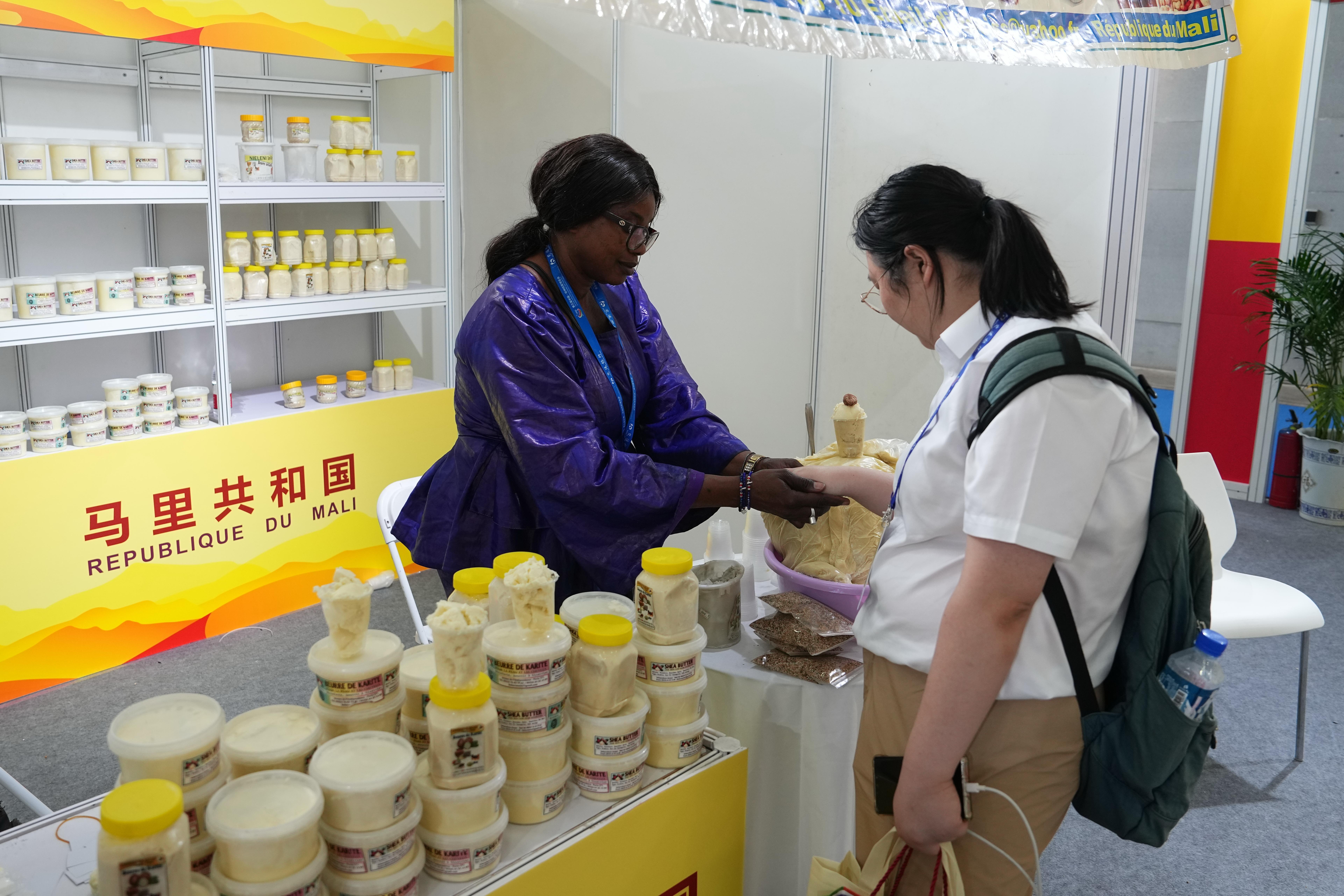Why a Chinese province’s trade plans could be a game changer for Africa
Hunan Province wants to be a key node in Africa’s trade with China and the rest of the world. This is a refreshing change for a continent whose people often feel future-starved, and tired of empty rhetoric from Western capitals.

“The United States is ‘all in’ on Africa’s future.” This was the line from President Joe Biden at the U.S.-Africa Business Forum in December. This linking of Africa and “future” is a tic of our time. It play-acts inclusivity while deftly stepping past the fact that living in Africa frequently feels like there is no future.
Africans have learned the hard way that all this “future” talk is mostly about other people’s futures — not that of the continent. This is as true for Biden’s “future” as it is for Beijing’s “community of a shared future for humankind.” It’s very rare for Africa actually to be included in someone else’s future plans.
This is why developments in China’s Hunan Province are so notable.
Some context: Changsha, the capital of Hunan, hosted the third China-Africa Economic and Trade Expo (CAETE) last week. It attracted representatives from 50 African countries, and about 100,000 visitors locally. A total of $10.3 billion in deals and 74 cooperative projects were signed.
But so what? A trade show is just a trade show. The real significance of CAETE needs a bit more context.
First, it comes against the background of a 90.4% jump in trade between Hunan and the continent in the first quarter of 2023, compared with a year ago. In the first four months of the year, African agricultural exports to Hunan increased 16.6 times, as new product categories were cleared by Chinese customs.
Second, the expo isn’t a stand-alone event. It’s part of Hunan Province’s larger ambition to position itself as a hub for African agricultural trade. Over the last few years, Hunan has rapidly expanded its agricultural trading infrastructure. This includes a cacao trading center and connections with Chinese ecommerce networks, which have proven enthusiastic adopters of African products like coffee and honey. These are connected to an expansive logistics and transport network, which includes a river-rail-sea trade route that connects to harbors in Guangdong, and a direct air route in collaboration with Ethiopia Air, the continent’s most important airline.
These position Hunan as a major hub serving the so-called “green lanes” agreed to at the last Forum on China-Africa Cooperation in 2021. In other words, it provides a glimpse of how Chinese provinces are emerging as key trade facilitators with the continent, which in turn feeds into a broader political relationship that earns China support in forums like the UN.
Hunan has also approved plans for a free-trade zone. Key to this expansion is the province’s RMB clearing hub run by the Industrial and Commercial Bank of China (ICBC), which currently facilitates trade between Chinese yuan and six African currencies. This in turn links to wider trends. First, as the vogue for de-dollarization continues across the developing world, this advances the use of the yuan in Africa-China trade and links to plans to foreground non-dollar trade among African countries, as part of the African Continental Free Trade Area (AfCFTA), the world’s largest free-trade zone.
Music to African ears
There are rumors coming from Chinese think tanks that the government is also looking into linking AfCFTA and the Regional Comprehensive Economic Partnership (RCEP), the free-trade pact that includes China, the 10-member Association of Southeast Asian Nations, Japan, South Korea, Australia, and New Zealand.
Hunan hosted an RCEP trade expo in May, to foreground its land-sea bridge aimed at boosting trade with Southeast Asia. Changsha is also on the major BRI transport corridor connecting China to Europe via Central Asia. This means Hunan offers African producers access to three crucial Asian markets: China itself, its Southeast Asian neighbors, and the upcoming economies of Central Asia.
This is music to the ears of countries like South Africa as it faces the possibility of being kicked out of the U.S.’s African Growth and Opportunity Act (AGOA) for being too cozy with Russia.
China news, weekly.
Sign up for The China Project’s weekly newsletter, our free roundup of the most important China stories.
Other African countries are also increasingly looking at agriculture and agri-processing as a path to economic growth, especially as an alternative to mining. But they face the reality of all-powerful agricultural lobbies in the U.S. and the EU imposing a hard ceiling on the level of market access these countries can expect. Despite the Biden administration’s “all in” slogan, the continent’s policymakers know all too well that new free-trade agreements are political poison in Washington. If neither Latin America nor Southeast Asia could make it work, Africa certainly won’t.
The issue isn’t tariffs alone. After all, AGOA’s tariff elimination boosted U.S.-Africa trade for a while, but the U.S.’s domestic shale oil revolution and political curbs on apparel imports from Ethiopia helped to push that number back down to pre-AGOA levels. Rather, Hunan provides a glimpse of a different approach, one both narrower (in focusing on agriculture) and broader (in targeting a wider range of logistical barriers between farmer and consumer).
More crucially, Hunan’s approach seems to build trade with Africa into Hunan’s own future planning in a way the continent can’t expect from its traditional trading partners. In many ways, that is unprecedented, and it remains to be seen how effective it’ll be. But for a future-starved continent like Africa, it’s a powerful gesture.






